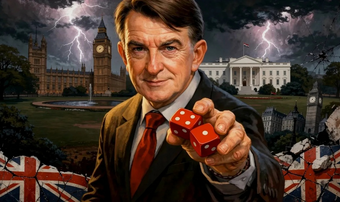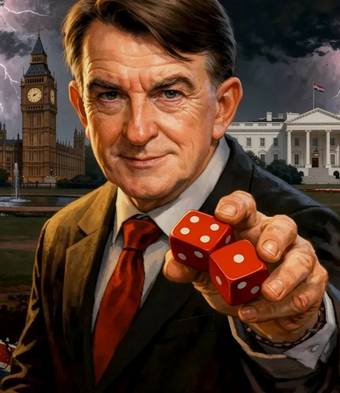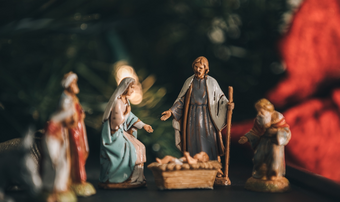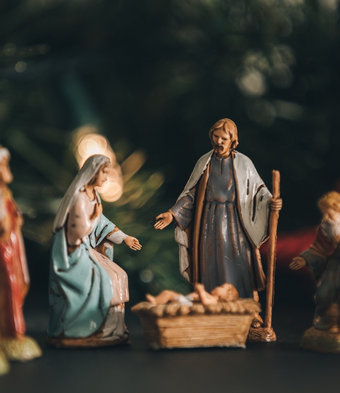O come, O come Emmanuel - A Year in Review
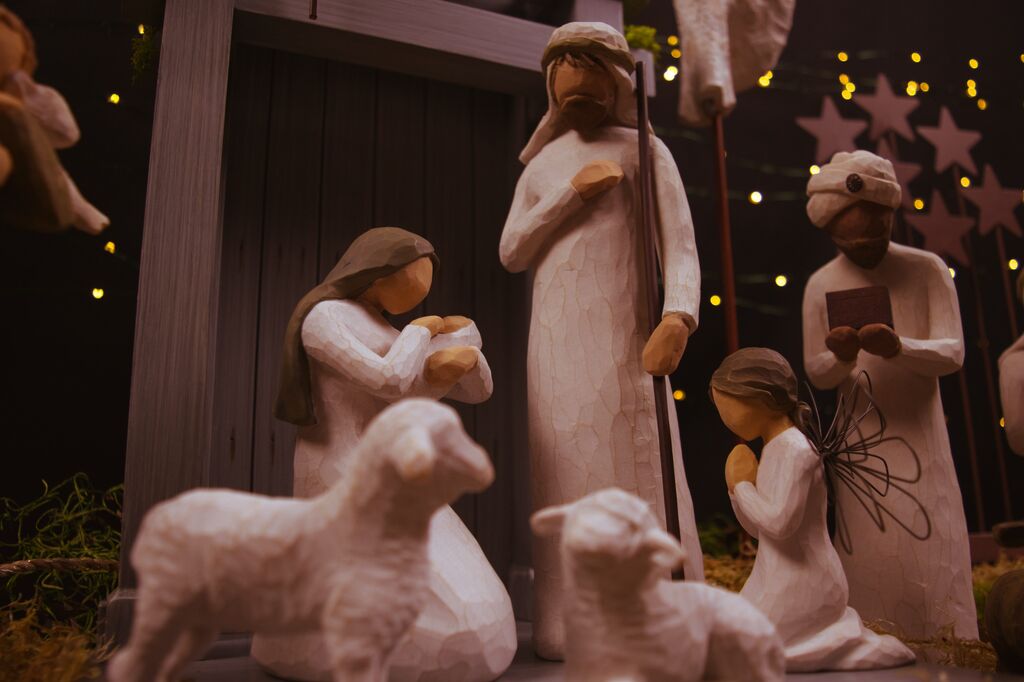
It feels like this is now said every year, but many of us will be glad that 2022 is coming to a close. We flick on our televisions each night or we open up our news apps in the mornings and we feel fatigued and wearied by all that is going on. Amid instability at home and turmoil abroad, we long for respite.
Many of us will have sung the advent hymn ‘O come, O come Emmanuel’ in recent weeks, asking God to intervene and to save his people; in the midst of a world choking in pain, sin and suffering, we recognise that things are not supposed to be this way, and we echo Israel’s cry for Him to restore us from exile to our heavenly home.
"O come, O come, Emmanuel, And ransom captive Israel, That mourns in lonely exile here, Until the Son of God appear."
When the year began, Europe was (just about) still at peace, the Partygate scandal was only just beginning to break, and few of us had heard of Mick Lynch, Sue Gray or Just Stop Oil. When the year began, we were not expecting to have more than one Prime Minister for the next three years, rather than having three Prime Ministers in one year. When the year began, our much-loved queen was about to begin her Platinum Jubilee Year.
In our work at CARE too, for every moment of encouragement (and there have been many, from the defeat of Lord Forsyth’s underhand amendment to force assisted suicide legislation to the passing of the Justice Bill in Northern Ireland, guaranteeing support to victims of trafficking), there have been moments of real frustration and concern and sadness.
It is frustrating to see the way delays to the Online Safety Bill mean there are still no age checks for online pornography, exposing a generation to dangerous sexual practices. It is disturbing to see Jersey begin a consultation about the possibility of introducing Assisted Suicide legislation, particularly in light of what has been going on in Canada. And just this week, we’ve seen the Scottish government push through their radical reforms around self-identification for transgender people.
As we reflect on 2022, it has felt like a year of chaos, of quarrels, and at times, of craziness (Liz Truss vs the lettuce, anyone?). Or in Biblical language, we might say it feels like we are currently in a ‘land of darkness’. And if it were not for the hope we have in Jesus, all we could really expect would be more of the same.
But we do have hope in Jesus. Because as Christians, we don’t just read the big stories of the week in the newspapers, we reflect on the bigger and better story, the great meta-narrative of the universe, the story of the Son of God who saved the world.
“The people walking in darkness have seen a great light; on those living in the land of deep darkness a light has dawned.”
For although we may be glad 2022 is almost over, there is nothing new under the sun. Why is it that we still sing for God ‘to ransom captive Israel’ today? It’s not a comment on the political status of the Holy Land, but a recognition that just as Israel waited for their Messiah, in the same way, today, we await His Second Coming (something we often forget in the season of Advent). It is our 21st century echo of the cries of our forefathers in the Old Testament.
The darkness we face today is not new. Just think of the world Jesus was born into. Wars are not a new occurrence: Israel was invaded by Babylon, Persia, Greece and finally Rome. We grieve for babies aborted in the womb or the potential threat to the elderly in potential assisted suicide legislation; back then, throughout much of the Greco-Roman world, disabled babies were murdered as a matter of course. We think we’ve faced political instability with Partygate, Pincher and a speech about Peppa Pig? Imagine living under King Herod, who executed 3 of his own sons. There is darkness today. But it’s not new.
And even within the stories re-enacted in schools up and down the country, there is darkness: Mary and Joseph fleeing to Egypt as refugees; the threat - even from Jesus’ birth - of his future death, as the Magi present him with myrrh for his burial; Herod’s massacre of the baby boys.
“A voice is heard in Ramah, weeping and great mourning, Rachel weeping for her children and refusing to be comforted, because they are no more.”
There is darkness. And it has always been so.
But there is also light.
“The light shines in the darkness, and the darkness has not overcome it.”
The light that gives light to the world was born in the person of Jesus Christ, bringing hope and healing and wholeness for those who believe in Him.
We feel frustrated at the corruption of our political system or the way our leaders desperately seek to cling onto power. But here is the one who gave up his power and glory and made himself nothing, taking on the nature of a servant (Philippians 2:7), the one who’s aim wasn’t self-preservation, but self-sacrifice on a cross.
We recognise the financial struggles people are facing this Christmas through the cost of living crisis and rising energy bills, and want to provide support where we can. But here is the one who says He has come to bring good news to the poor (Luke 4:18) and says that giving the hungry something to eat can be the same as feeding the Lord himself (Matthew 25:40).
We hear of an epidemic of anxiety, particularly among our young people. But here is the one who tells us we are, each of us, valuable to Him (Matthew 6:26) and that He is with us always, even unto the very end of the world (Matthew 28:20)
We grieve for the way those experiencing disability have been neglected by society, or even erased from it through abortion or assisted suicide. But here is the one who reaches out to the unclean leper (Matthew 8:3) and refuses to walk past the blind beggar on the streets (Mark 10:49), and who ultimately - whether in this life or the next - will heal every sickness.
We feel angry as we see the lack of progress in combatting human trafficking, problem gambling or online safety. Yet here is the one who restores and forgives the prostitute (Luke 7:48). Here is the one who came to set the captives free (Luke 4:18), whether that be physical or figurative. Here is the one who says He will judge those who do not protect the children (Matthew 18:6).
We feel ashamed as we see the way we contribute to the world’s problems; when we reflect on our own sinfulness and selfishness we know that we all play a part in what has gone wrong in this hurting world, we all have rebelled against our Creator and hurt and harm those around us, even those we love.
And yet here is the one who has forgiven us for our sins and says to us ‘Go in Peace.’ Here is the one who took on the powers of hell and darkness and who triumphed over them on the cross. Here is the one who rose again from the dead and broke the stranglehold of death and raises us to new life.
As we approach Christmas, we do recognise darkness for what it is: there is evil and suffering in this world. But we also recognise that light has come in the darkness, and light has already won. And one day, all the world will see that, when Jesus comes again in glory to set the world to rights and to usher in a new world.
And as we sing ‘O come, O come Emmanuel’, we sing with confidence and certain hope its chorus.
“Rejoice! Rejoice! Emmanuel Shall come to thee, O Israel.”
I pray that you may have a very happy Christmas and a blessed New Year.

